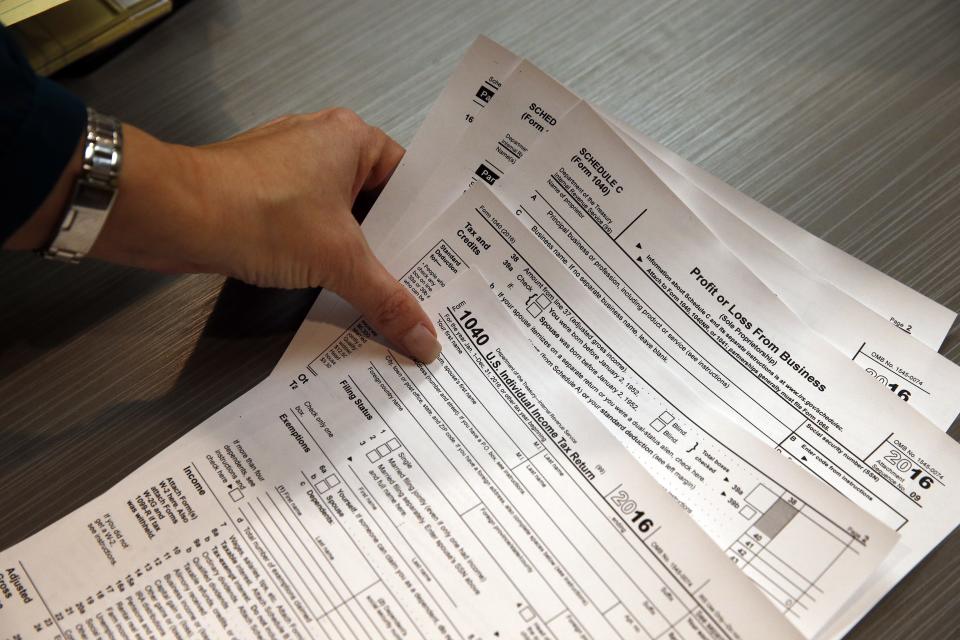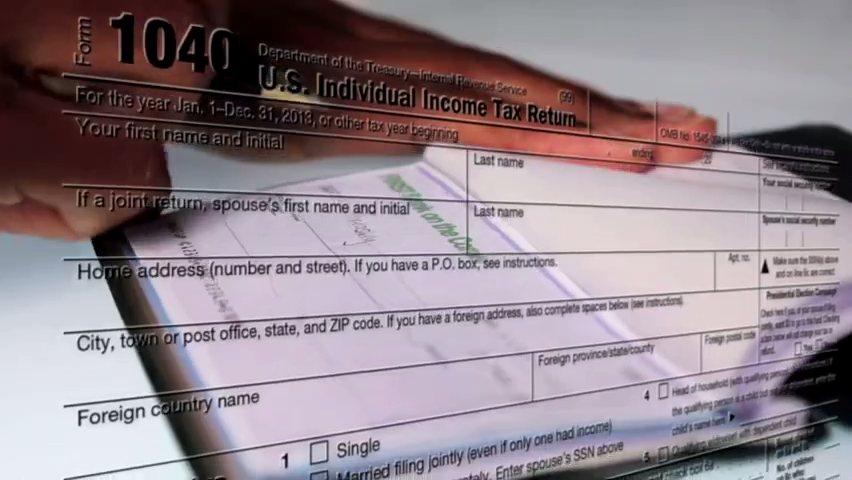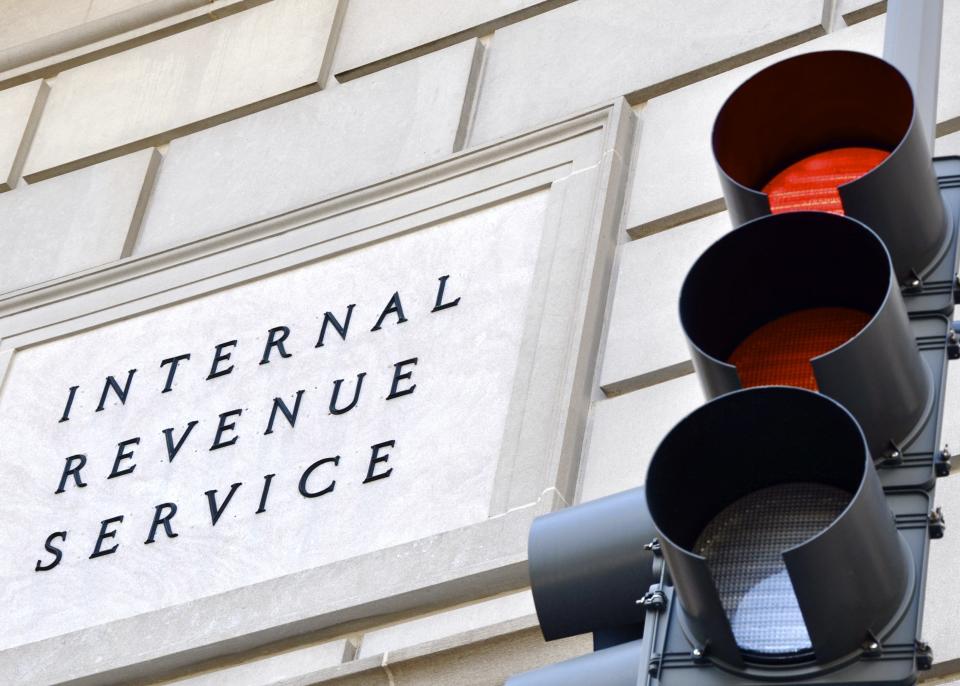Ready, set, file: What to know as income-tax season nears
A new year means the annual ritual of filing federal and state income-tax returns isn't far off.
The Internal Revenue Service and the Arizona Department of Revenue will start accepting returns Jan. 23. The IRS expects 168 million personal federal returns to flow in this year, with Arizona likely to process around 3.6 million or more at the state level.
There’s no need to file that soon but you might want to get an early jump if you’re expecting a refund. You also might want to file relatively early to thwart possible identity thieves who could try to file in your name to grab your refund, if they have access to your Social Security number and other personal details.
For the most part, the tax rules for 2022 returns to be filed in coming weeks and months are fairly similar to what they looked like for 2021. Among the bigger changes was Arizona’s adoption of a 2.5% flat tax, though that won’t affect 2022 returns. Here are some of the key filing reminders and related topics, with a summary of new wrinkles:
Money:Should we file taxes jointly or separately? A guide for couples who said 'I do' in 2022
Who needs to file tax returns?
Most U.S. citizens and residents who earned money last year must file federal tax returns. Single people under age 65 who earned $12,950 or more must file, along with singles 65 or older who earned at least $14,700. Filing requirements kick in for married couples under age 65 who earned $25,900 or more.
If one spouse is 65 or older, filing is required with income above $27,300. For a married couple with both spouses 65 or older, it’s $28,700 in income or above. And there are various other thresholds for heads of household, married couples filing separately and surviving spouses, as explained more fully in IRS Publication 17, along with an online calculator to help determine that.

Seniors should keep in mind that some of their Social Security retirement benefits might be taxable. The IRS has an online frequently-asked-questions section for that.
But even if your income isn’t quite at or above those levels, you might want to file anyway, as you could qualify for the earned income tax credit or various other low-income credits.
Arizona requires full- or part-time residents to file a state return here if they have adjusted gross income above $12,950 (single or married filed separately), $19,400 (head of household) or $25,900 (married filing jointly).
Where to get help with filing your taxes
All sorts of tax preparers can help you file your federal and state returns, and most charge a fee. These include certified public accountants, enrolled agents and preparers who haven’t earned those designations.
One study by the National Society of Accountants pegged the average cost for a federal 1040 and corresponding state return, without itemizing, at around $220. With itemizing and preparation of the federal Schedule A, the average cost rose to more than $320. Tax-preparation costs rise with more complex returns.
The IRS partners with various tax firms that provide free (or mostly free) online return-preparation help. This is the Free File Alliance, and it’s available to people with low or moderate incomes. The IRS hasn’t yet announced which companies will participate, but the trend in recent years is toward fewer companies — just eight last year, down from 11 the prior year.
Some companies will help you file your federal return for free but might charge for state returns, so read the fine print. The IRS will unveil the program for the 2022 tax year in coming days. For tax year 2021, people with adjusted gross incomes of $73,000 or less are eligible.
Other free or low-cost programs include those offered by VITA, or Volunteer Income Tax Assistance, and TCE, or Tax Counseling for the Elderly. These often are highly helpful programs offering in-person assistance at libraries, schools and other public places around the Phoenix area, and nationally. Check out irs.gov/VITA and irs.gov/TCE for more information.
For subscribers:Inflation will cause some tax breaks to rise, but not all. Make sure you know these key exceptions
What if I need a tax filing extension?
Both Arizona and the federal government have pegged April 18 as the normal filing deadline for 2022 personal tax returns, though Arizonans and other Americans can receive automatic extensions this year to push that to Oct. 16. The normal deadline is a bit later than the usual April 15 due date because of the Emancipation Day holiday in the nation’s capital.
Extensions allow extra time to file but don’t provide delays for tax payments, which still are due April 18; otherwise, underpayment penalties and interest could apply. You should estimate your tax liability and pay any taxes owed by that date.

Taxpayers must file for extensions electronically or by mail by April 18 using Form 4868 (federal) or Form 204 (Arizona). Filing for an extension won't increase your risk of facing an audit. Not filing at all, if you're required to do so, comes with more serious consequences.
What's new for tax filing this year?
Various federal tax changes took effect for the 2022 tax year, including higher business-mileage rates and slight updates for contribution amounts and eligibility thresholds for both traditional and Roth IRAs or Individual Retirement Accounts.
Also, standard-deduction amounts rose modestly for 2022 to $12,950 for singles, $25,900 for married couples filing jointly and $19,400 for heads of household. Most people don’t itemize deductions but instead take the standard deduction. Major itemized deductions include those for property taxes, mortgage interest, charitable contributions and state/local income or sales taxes. Also, you may deduct medical/dental expenses that exceed 7.5% of your adjusted gross income.
Other changes for 2022 affect the child tax credit, the additional child tax credit, the credit for child/dependent care expenses and the earned income credit. IRS Publication 17, which can be viewed at irs.gov, provides an overview of these and other changes. Credits reduce taxes dollar for dollar (and might be refundable if they exceed your tax liability). Consequently, they are more valuable than deductions, which reduce the income on which taxes apply.
Prepare now for flat-tax rate in Arizona
Arizona's new rate of 2.5% for individuals kicked in Jan. 1, and new state forms are available for employees here who want to adjust their withholding. The Department of Revenue provides a couple of online calculators to help figure an appropriate withholding rate.
Employers must make these A-4 withholding forms available to employees by Jan. 31. The forms feature various withholding rates, going as low as 0%. Employers should retain the forms and not send them to the Department of Revenue. Employees who don’t complete and submit a new A-4 form will see state taxes withheld at a default rate of 2%.

Arizona lawmakers approved, and Gov. Doug Ducey signed, legislation to compress the state’s personal income tax rates from what was a maximum 4.5% that applied in 2021 to two rates in 2022 (2.55% and 2.98%) before the new 2.5% rate began this year.
Arizona was one of 11 states that initiated income-tax reductions on Jan. 1, according to the Tax Foundation. Of these, Arizona along with Idaho and Mississippi switched from multiple rates to a flat-tax structure. One state, Massachusetts, is raising tax rates.
Reporting rules for 1099-K forms delayed
One thing that hasn't changed involves smaller-dollar reporting requirements on IRS Form 1099-K that were supposed to take effect this tax-filing season. The IRS has delayed those, so they won't apply on 2022 returns.
The American Rescue Plan of 2021 had changed the reporting threshold for business transactions to $600 per year, from any number of transactions, from a prior aggregate amount of $20,000 from 200 or more annual transactions. As a result of the delay, third-party settlement organizations won’t need to report to the IRS, for tax year 2022, transactions worth as little as $600 in total.
“The additional time will help reduce confusion during the upcoming 2023 tax filing season and provide more time for taxpayers to prepare and understand the new reporting requirements,” said Acting IRS Commissioner Doug O'Donnell in a statement.
The IRS said it’s working to provide instructions and clarity so taxpayers better understand what to do. The existing 1099-K reporting threshold remains in effect for $20,000 or more in payments from over 200 transactions.
Critics, including the American Institute of CPAs, cited not only confusion but the need for payment networks to issue a substantial increase in 1099-Ks at a time when the IRS continues to work through a backlog of returns.
The new law is not intended to track personal transactions such as sharing the cost of a car ride or meal, for birthday or holiday gifts, or paying a family member for a household bill. Still, the AICPA cited "significant concern about the mistaken issuance" of 1099-Ks, possibly with some going for personal transactions, and with added work for professional tax-return preparers.
What's the latest on tax overpayment for 2020 jobless benefits?
The IRS on Jan. 6 said it finally finished correcting past returns for people who overpaid taxes on jobless benefits they received in 2020.
The American Rescue Plan Act excluded up to $10,200 in 2020 unemployment compensation from taxable income. Jobless benefits normally are taxable. The one-year exclusion applied to individuals and married couples whose modified adjusted gross income was less than $150,000.
Some taxpayers received refunds, while others had the overpayment applied to taxes due or other debts. The IRS corrected 14 million returns regarding this issue, resulting in nearly 12 million refunds averaging $1,232 each.
Taxpayers who feel they were eligible for the unemployment-compensation exclusion but didn’t receive a correction can file an amended 2020 return to claim it. Taxpayers can view their 2020 tax records in their online account at IRS.gov or request that a 2020 account transcript be mailed to them.
What to know about Arizona’s tax credits
Arizona offers several tax credits that don’t correspond exactly, if at all, with what’s in the federal tax code. As noted, credits can reduce your tax bill dollar for dollar unlike deductions, which reduce taxable income. Some of the credits are retroactive, meaning you can take them in coming weeks and apply them either to your 2022 tax return or your 2023 return.
One popular Arizona credit allows individuals to contribute to charitable groups or foster-care organizations. It's worth up to $400 for singles and $800 for married couples. Contributions can be made as late as April 15 and applied to either the 2022 or 2023 tax years.

In addition, there are two types of contributions to private-school tuition organizations, in varying amounts, that you can take as late as April 18 and use for 2022 or 2023. There's also a tax credit for contributions to public schools to pay for extracurricular fees or support other programs. It's worth up to $200 for singles or $400 for married couples but isn't retroactive.
More information on the various Arizona tax credits available to individuals is available on the azdor.gov website.
Keep in mind that if you claim a charitable deduction on your federal return and use it for an Arizona charitable credit, you can't also claim the same contribution as an Arizona itemized deduction.
Tax deadlines 2023:When is the earliest you can e-file? When does IRS Free File open?
Other Arizona tax wrinkles to know
Arizona generally follows the federal tax code, meaning that the state mostly taxes the same types of income as the federal government and provides similar expense deductions. But there are a few notable differences. For example, Arizona allows taxpayers to deduct all medical/dental expenses, unlike the 7.5% of income threshold discussed above for federal tax returns.
The Department of Revenue recently posted new guidance for short-term home rentals for less than 30 days, including those for the Super Bowl, which returns to State Farm Stadium in Glendale in early February. The income from such rentals is subject to the state’s transaction privilege tax, which is similar to a sales tax.
Property owners should obtain a TPT license, the department said, and they might need to obtain a business license from the city where their home is located. The department provides more information on this at azdor.gov.
Patience still needed with IRS customer service
Tax-return filing season can cause stress even in the best of times, and that's not the case now, noted National Taxpayer Advocate Erin Collins in a just-released report to Congress.
The IRS ended 2022 with 10 million unprocessed returns, including 5.9 million from individuals, though that was an improvement from 16 million unprocessed returns including 10 million from individuals at the end of 2021, when pandemic disruptions caused more havoc. And if you tried to place a telephone call to the IRS, you probably didn’t get through. Only 13% of calls from the public were answered last year, not much better than the 11% in 2021, even as call volume dropped by more than one-third. Many taxpayers didn’t bother to reach out.
“The improvements in service will not happen immediately, and I anticipate that the upcoming filing season will present challenges," Collins wrote in her report.
Still, Collins said the IRS is in a better customer-service position starting 2023 than in prior years. Partly, that’s because a lot of the backlog was whittled down. In addition, Congress has boosted IRS funding, allowing the agency to hire more staff. Delays and frustrations will linger, but taxpayers should expect gradually better service ahead.
The IRS said it has hired roughly 5,000 new telephone representatives to handle calls.
Reach the writer at russ.wiles@arizonarepublic.com.
This article originally appeared on Arizona Republic: Filing income taxes in Arizona? When to file and what's new for 2023

